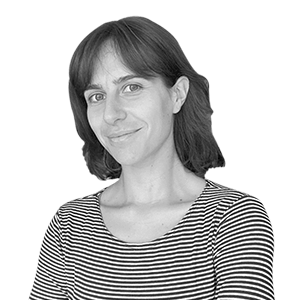Chile is preparing to shift to the right in the presidential elections
Public safety is the focus of the election campaign amid the rise of organized crime.


Buenos AiresMore than 15 million Chileans are called to the polls this Sunday to elect a new president to succeed the current one. progressive Gabriel Boric The first round of voting will take place on March 11. According to the latest polls, no candidate will secure enough support—more than 50% of the vote—to become president, necessitating a runoff election scheduled for December 14. However, Sunday's results will be crucial in understanding Chile's future, as they will confirm the composition of the Chamber of Deputies and the Senate, and resolve the biggest question so far: which of the three right-wing candidates will advance to the second round?
Although eight candidates are running in the election, only four have a chance of making it to the second round. On the left, there is only one candidate, the communist Jeannette Jara, Boric's successor, who unifies and consolidates the progressive vote. In contrast, the more fragmented right has three options: Evelyn Matthei, running with the Chile Vamos coalition, is the most moderate and consensus candidate; the far-right candidates José Antonio Kast (Republican Party) and Johannes Kaiser (National Libertarian Party), who is even more radical—considered the Chilean Milei—and has made a strong showing in the campaign.
Polls give Jara around 35% of the vote, while Kast would get 20%, Kaiser would be right behind with almost 20%, and Matthei with 14%. For now, the most likely scenario for the second round is a duel between Jara and Kast, but Kaiser could pull off an upset.
Mandatory voting
In 2022, mandatory voting was reinstated in Chile's presidential elections. According to analysts, this change continues to raise questions about the voting behavior of between three and four million "new voters," who might be inclined to support either Kaiser or Kast. "Kast and Kaiser's platforms aren't very different," explains Alejandro Olivares, a political scientist at the University of Chile, to ARA. "Both are in favor of the free market and have conservative morals, but Kaiser has a more disruptive style." In other words, possibly more aligned with the logic of the new global right. Former YouTuberWith social media as the foundation of his campaign and a simplified, provocative discourse, he promises a tough stance against crime and expresses sympathy for Augusto Pinochet's dictatorship. However, these two characteristics are a common denominator among the three right-wing candidates: on the one hand, the justification of the 1973 coup and the downplaying of human rights violations during the dictatorship, and on the other, the iron fist against organized crime.
Currently, insecurity is the main concern for Chileans, who, although they do not live with—far from it—the most alarming crime rates in Latin America, have witnessed a change in the nature of the crimes committed in the country. In a dynamic that has already become regional, transnational organized crime networks have also been gaining ground in the Andean nation, where crimes that "were previously unknown" are now being seen, explains Octavio Avedaño, a sociologist at the University of Chile: kidnappings, mutilations, and revenge killings between drug gangs. "This generates a very significant perception of insecurity," adds the expert, who also points out that the right wing has capitalized on this and, in its electoral campaign, has promised the creation of maximum-security prisons, the deployment of the armed forces throughout the country, and the strengthening of border controls to intercept illegal migration, which is linked to involvement in organized crime. The cost of living has also increased in Chile in recent years, but today it is a secondary concern for Chileans because inflation is relatively controlled and the economy remains stable.
Economically, the right's proposal is also becoming more radical, moving towards "deregulated neoliberalism, with virtually no state intervention, and a model centered on private sector participation," Avedaño states. The right has set the election agenda, because it has managed to get all the candidates to talk about public safety and order, rather than economic growth or employment. The sociologist believes it is practically "inevitable" that "the far right will end up absorbing the moderate or democratic right."
In this sense, both analysts agree that Gabriel Boric's government has not met the electorate's expectations: although He arrived at the Palacio de la Moneda in 2021 with enthusiasm And despite his desire to drive change in the country, it has ended up being "a government of continuity," Avedaño asserts. For his part, Olivares believes that Boric "has been overwhelmed by the exercise of power," but he doesn't consider him solely responsible. "The left around the world is in crisis due to a lack of leadership and collective projects," he concludes.
